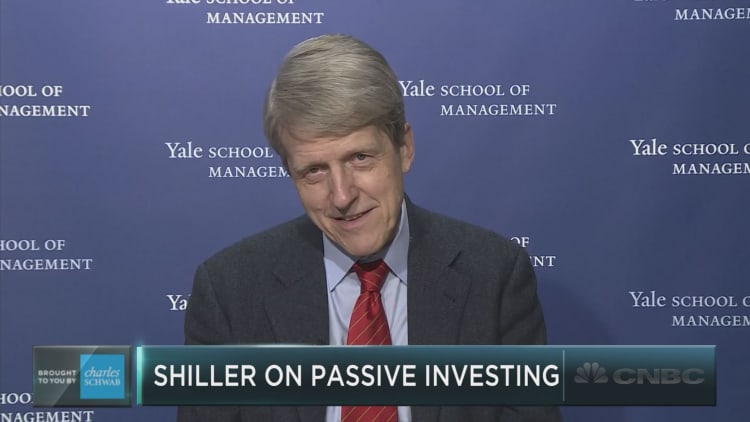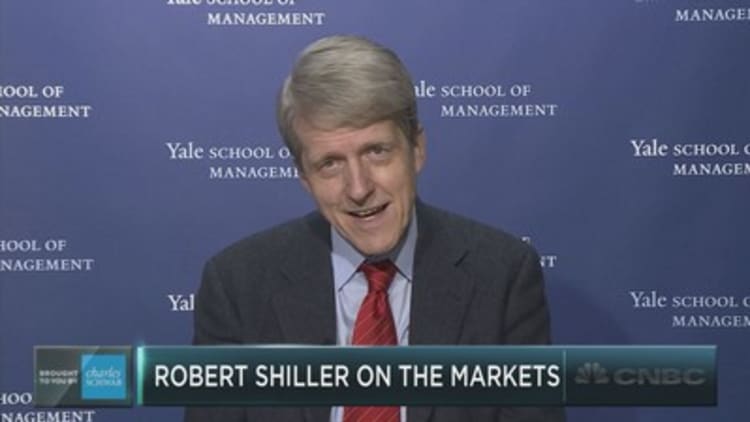
One of the country's greatest economic minds is questioning the value and role passive investing is playing in the bull market.
Nobel Prize-winning economist Robert Shiller is seeing worrisome issues surrounding the growing popularity of index funds and ETFs among retail investors.
"The strength of this country was built on people who watched individual companies. They had opinions about them. All this talk of indexes, it's a little bit diluting of our intellect. It becomes more of a game," Shiller said Monday on CNBC's "Trading Nation." "It's a chaotic system."
Shiller, a Yale University economics professor, compares passive investing to seeing a green light at an intersection and crossing the street without looking both ways.
According to data published by Morningstar earlier this year, investors poured more than a half trillion dollars into passive funds in 2016. The number could break more records this year with investors coming off the sidelines to participate in the record rally.
"The problem is that if you are talking about passive indexing, that is something that is really free-riding on other people's work," Shiller said. "So people say, 'I'm not going to try to beat the market. The market is all-knowing.' But how in the world can the market be all-knowing, if nobody is trying — well, not as many people — are trying to beat it?"
It's a conundrum that Shiller finds perplexing. When asked what passive investing could look like in 10 years, he wasn't sure.
"It's kind of pseudoscience to think these indexes are perfect, and all I need is some kind of computer model instead of thinking about business," Shiller said.







